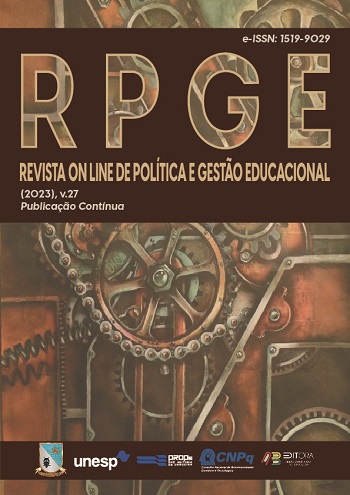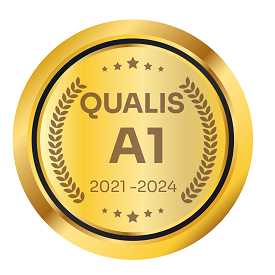Teoría democrática
Algunas aproximaciones y consideraciones sobre la práctica participativa
DOI:
https://doi.org/10.22633/rpge.v27i00.18456Palabras clave:
Democracia directa, Democracia representativa, Límite, Reglas, ParticipaciónResumen
El presente artículo presenta la concepción de democracia, discutiendo su origen y trayectoria hasta la contemporaneidad. La democracia es entendida como una forma de gobierno que viene posibilitar, además de la toma de decisiones, la elaboración de reglas y discusiones colectivas de los representantes elegidos por el pueblo, a la alta participación de estos participantes en las decisiones y cuestiones que impiden un régimen de gobierno autocrático. Destaca dos tipos de democracia: directa, como una forma de participación de masas sin representantes para los debates y la toma de decisiones y representativa, donde el pueblo elige a sus representantes para que puedan decidir cuestiones relevantes para la comunidad. Sigue destacando algunas características y límites de la democracia. La democracia asume como punto principal la regulación, ya que, si no hay reglas en un proceso democrático, la democracia no existe, no tiene forma de sobrevivir, al menos en lo que se refiere al proceso de toma de decisiones y participación.
Descargas
Citas
BOBBIO, N. Democracia. In: MATTEUCCI, N.; PASQUINO G. (org.) Dicionário de política. Brasília, DF: Ed. Universidade de Brasília, 1998. v. 1, p. 319-329.
BOBBIO, N. O futuro da democracia. Tradução: Marco Aurélio Nogueira. São Paulo: Paz e Terra, 2009.
COUTINHO, C. N. Democracia: um conceito em disputa. Fundação Lauro Campos, São Paulo, 2008. Disponível em: https://educacao.mppr.mp.br/arquivos/File/gestao_democratica/kit2/democracia_um_conceito_em_disputa.pdf. Acesso em: 05 fev. 2022.
DAHL, R. A. Sobre a democracia. Brasília, DF: Universidade de Brasília, 2001.
GADEA, C. A.; SCHERER-WARREN, I. A contribuição de Alain Touraine para o debate sobre o sujeito e democracia latino-americanos. Revista de Sociologia e Política, Curitiba, n. 25, p. 29-45, 2005.
PEREIRA, A. K. B. A concepção democrática de Bobbio: uma defesa as regras do jogo. Revista de Estudos de Política, Campina Grande, n. 1, v. 1, p. 53-67, 2012.
SOUZA, A. R. Perfil da gestão escolar no Brasil. 2006. 322 f. Tese (Doutorado em Educação) – Pontifícia Universidade Católica de São Paulo, São Paulo, 2006.
TOURAINE, A. O que é democracia. Petrópolis, RJ: Vozes, 1996.
Descargas
Publicado
Cómo citar
Número
Sección
Licencia
Derechos de autor 2023 Revista on line de Política e Gestão Educacional

Esta obra está bajo una licencia internacional Creative Commons Atribución-NoComercial-CompartirIgual 4.0.
Manuscritos aceitos e publicados são de propriedade da Revista on line de Política e Gestão Educacional. É vedada a submissão integral ou parcial do manuscrito a qualquer outro periódico. A responsabilidade do conteúdo dos artigos é exclusiva dos autores. É vedada a tradução para outro idioma sem a autorização escrita do Editor ouvida a Comissão Editorial Científica.











